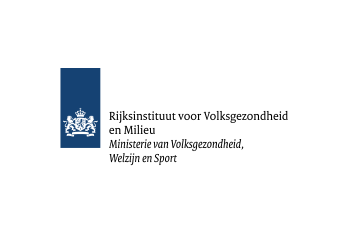What is mental health?
'Mental health' means the same as psychological well-being. In addition to there being different terms, there is no single definition of mental health. The Nationaal Kompas gives the following description: optimal mental health involves stable functioning, resulting in productive activities, satisfying relationships with others, and the ability to adapt and cope with setbacks. In everyday language, we say comfortable in your own skin. Examples of impaired mental health could include depression (or its warning signs), unhappiness and anxiety.
In brief:
- Mental health consists of emotional, psychological and social well-being.
- Emotional well-being stands for satisfaction, joy, cheerfulness.
- Psychological well-being stands for self-acceptance, optimism, spirituality.
- Social well-being stands for social acceptance, self-esteem, connection to the community.
- Around 50% of people with HIV experience mental health problems: possibly as a result of having a chronic condition, the virus, medication and stigma.
- You can work on your mental health in various ways, such as exercising or getting online support.
- Don't hesitate to seek professional help if you feel you need it.
- The Hiv Vereniging (Dutch HIV Association) offers a workshop that teaches you how to cope with HIV, and offers several opportunities of meeting other people HIV.
- Hello gorgeous offers RESET: a workshop that increases your resiliance against (self) stigma and chances your view on your life with HIV.
Mental health of people with HIV
Impaired mental health can happen to anyone. One in four people experience mental health problems at some point in their lives, whether they have HIV or not. People with HIV are especially vulnerable: about 50% will experience mental health problems during their lifetime. This may be due to the effects of the virus, a side effect of HIV medication, the difficulties of living with a chronic condition (stigma and prejudice around HIV), and sometimes the fear of transmitting HIV to others.
The influence of stigma on mental health
HIV-related stigma, or self-stigma, can impact your mental health. Consequences of stigma can be low self-esteem, mental health problems, dissatisfaction, and reduced motivation to stay healthy. Stigma can be a reason that people don’t want to reveal their HIV status to friends, family or acquaintances – whereas living with a secret can be damaging to mental health. The Hiv Vereniging is working hard to reduce stigma and to normalise HIV. Click here to read these practical tips for dealing with the stigma (in Dutch).
Influence of physical health on mental health
Exercise and feeling physically fit improves mental health. However, this is not always easy to achieve. Many people with chronic conditions (such as HIV) have impaired physical health. HIV infection does not progress in the same way for everyone, some people have physical complaints from the infection or suffer from side effects of the medication. Being physically less able can push people to the limits of their mental endurance. So healthy eating and enough exercise are important, as well as taking your side effects seriously and seeing if you can do something about them.
A suppressed virus can also improve your mental state. A suppressed virus (meaning HIV is not transmissible: undetectable = untransmittable) can have a positive influence on your emotional, psychological, social and sexual well-being. U=U ensures that people with HIV cannot transmit the virus. It gives people with HIV confidence and sense of identity. The fear of transmitting the virus disappears, allowing people with HIV to move freely in their social and sexual lives, preventing isolation. U=U means there is happiness instead of fear. Finally, U=U ensures that a sense of shame is replaced by acknowledgement. People with HIV are given a boost to their confidence and self-esteem when stigma is reduced and a fear free environment is created. Read more here about U=U or n=n (in Dutch).
Influence of medication on mental health
Impaired mental health can be a side effect of some HIV medications. The non-nucleoside reverse transcriptase inhibitor (NNRTI) efavirenz has been linked to symptoms of depression. Other HIV medications may also cause impaired mental health as a side effect. In addition, insomnia caused by medication can affect mental health. Always bring it up with your specialised HIV doctor or HIV nurse if you suffer from gloomy thoughts or insomnia, because sometimes switching medication can improve mental health.
Influence of mental health on physical health
Mental health also affects physical health. Impaired mental health can cause treatment adherence to be compromised. Treatment adherence usually leads to an undetectable viral load, which promotes physical health. People with mental problems often don't take care of themselves, eat unhealthy food, or don't exercise enough. This can cause physical health to deteriorate.
How can I take care of my mental health?
When living with HIV, it's normal to sometimes feel emotional, anxious, fearful or depressed, especially when you have just been diagnosed. Relaxing, having a healthy diet, and exercising can alleviate symptoms. A social network also has a positive impact on mental health. In addition, some people find meditation or mindfulness a nice way of improving their mental health.
But if these symptoms don't go away, you should definitely ask your specialised HIV doctor or HIV nurse for support in this process. Sometimes switching your HIV medication can be the answer. The specialised HIV doctor or HIV nurse can also refer you to a psychologist or psychiatrist (perhaps one specialised in HIV). You can also tell your general practitioner that you are not feeling comfortable in your own skin, he or she can refer you to a practice nurse, psychologist or psychiatrist.
Researchers in Leiden have developed the self-help program Living Positive with HIV, which can be followed online free of charge. The program is aimed at reducing gloomy feelings in people with HIV. You can register at www.zelfpositiefleven.nl/en/. There is also a test there to determine the state of your mental health. The intervention focuses on people who are feeling a bit down, it is not intended for people with full-blown depression.
If you want more information on mental health support, and you live or work in the Amsterdam area, please contact the outpatient clinic of the knowledge centre for HIV and Mental Health Problems at GGZingeest (020 - 788 50 00). If you are having suicidal thoughts, you can call or chat with 113. Here you find the contact details of 113 (in Dutch). I
Services offered by the Hiv Vereniging
The Hiv Vereniging doesn’t offer formal care, such as talks with psychologists or psychiatrists. We do offer a wide range of informal care. This informal care consists mainly of talks with other people with HIV. This is a backup to formal care. There are various ways of getting in touch with other people with HIV:
- The Hiv Vereniging routinely organises six-session workshop series for people with HIV: these take place in several locations throughout the country (cities with an HIV treatment centre). Participation is free! You learn about living with HIV and you meet other people with HIV.
- You can call the Servicepunt and request a face-to-face talk with someone with HIV. This is an easy-going way of talking about living with HIV. The talk is not meant for people who are still really struggling with their HIV status. Peer counselling could be a better option for them.
- You can ask the Hiv Vereniging for peer counselling. We look for a trained peer counsellor who is right for you: one you can talk to about issues that are important to you. You get to talk in depth with someone who has HIV for some time: someone who is a skilled, empathetic listener.
- You can also join one of the Hiv Vereniging’s community support groups or regions. There are groups for families, young people, adolescents, gay men, women, people with an immigrant background, long-term survivors and straight men. Contact the Servicepunt for more information.









